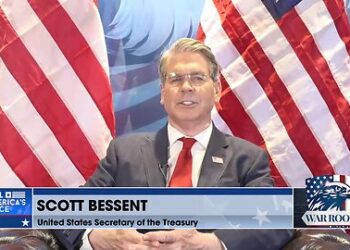Date: January 2025
Location: Hollywood Hills, Los Angeles, California
Steve Bannon spoke with Phillip Patrick about the aftermath of California’s wildfires, particularly in the Palisades area. Patrick, a resident in the Hollywood Hills, gave a firsthand account of the devastation caused by the fires. The situation, he said, was “apocalyptic.” He described how many people in the area had lost their homes and livelihoods. The damage from the fires was extensive, but what added to the suffering was the lack of insurance for many victims.
Patrick noted, “I personally know a lot of people who have lost their homes,” adding that the experience was “unbelievable.” While he and his family were fortunate to escape the flames, many of their neighbors were not so lucky. The fire, he explained, was an unpredictable force, causing chaos and panic as families evacuated their homes. Despite this, some residents found themselves in a dire situation because of their insurance policies.
Resource for this report:
"Apocalyptic Is The Word To Use.” Phillip Patrick Discusses Being Evacuated During LA Fires @BirchGold pic.twitter.com/C0Ocl2d80S
— Bannon’s WarRoom (@Bannons_WarRoom) January 11, 2025
According to Patrick, many people living in high-risk areas had seen their insurance cut. In particular, he pointed out that the California Fair Plan, which is meant to cover high-fire zones, had limited funds. He stated, “It has about $2.5 billion in funding, while the damage is already well over $60 billion and still counting.” This disparity raised serious concerns about whether those affected would ever receive adequate compensation or be able to rebuild their homes.
Bannon joined the conversation, commenting on the broader economic context. He pointed to what he described as an impending global liquidity crisis. He explained that rising interest rates and mounting deficits were creating “turbulence” in the financial markets. “The job in front of President Trump and the team is very, very tough,” Bannon said. He warned that the crisis facing the U.S. economy would make it difficult to balance the books without significant cuts to government spending.
Bannon’s description of the fire victims’ plight mirrored his concerns about the broader economic picture. “When you see situations like this, it’s clear that the system is broken,” Bannon remarked. He emphasized that the economic turbulence was only exacerbated by the rising debt and interest rates. “Deficits are growing, and the cost of financing them is compounding the problem,” he said.
Patrick’s insights painted a grim picture for the victims of the fire. He described how many were left in the dark about their financial futures due to their inadequate insurance. “The insurance problem is going to be a big issue,” he warned. The challenges were not just financial but emotional, as families faced the uncertain future of rebuilding their homes. For those without insurance, the road to recovery seemed daunting.
In addition to the insurance crisis, the conversation also touched on the larger economic implications. Bannon noted the difficulties the U.S. government would face in addressing the growing fiscal challenges. He stressed that the country was dealing with “massive deficits” and “huge amounts of short-term debt” that needed to be refinanced. “It’s going to get expensive, and it’s going to compound the problem,” Patrick said, outlining the difficult task ahead for President Trump and his administration.
As Patrick concluded, he reiterated the need for diversification and a hedge against the growing uncertainty. “Precious metals have provided that edge for thousands of years,” he stated. He encouraged listeners to take action, suggesting that now was the time to prepare for the turbulent times ahead.
The report ended with a reminder of the challenges the country was facing. As Bannon put it, “We need to brace for turbulence. There’s no way around it.” The situation in California, with its fire victims struggling without insurance, was just one example of the broader economic instability affecting the nation. As Bannon pointed out, both the financial markets and natural disasters were colliding, creating a storm of uncertainty for many Americans.
Watch the full interview for more context:




